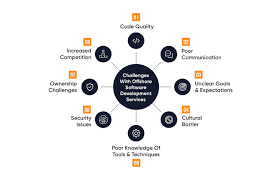
Top 5 Challenges of DCS Integration on Offshore Platforms
Offshore oil and gas production is one of the most complex engineering environments in the world. Floating Production Storage and Offloading (FPSO) units and fixed platforms depend on Distributed Control Systems (DCS) to manage safety, efficiency, and reliability.
However, DCS integration offshore is rarely straightforward. Legacy equipment, harsh environmental conditions, and strict safety requirements make integration projects challenging. In this article, we’ll explore the top 5 challenges of DCS integration on offshore platforms—and how the right approach can help operators and consultants overcome them.
1. Legacy System Compatibility
Many offshore platforms operate on older DCS systems that are reaching obsolescence. Integrating new hardware and software with legacy systems poses risks such as:
-
Communication protocol mismatches
-
Limited vendor support for outdated platforms
-
Risk of production downtime during cutover
A phased migration strategy, along with vendor-independent integration expertise, can reduce risks while ensuring business continuity.
2. Harsh Offshore Environment
Offshore platforms face extreme conditions—salt-laden air, humidity, vibrations, and temperature fluctuations. These factors affect both the reliability of equipment and the success of integration.
Modern DCS solutions must be ruggedized, tested for offshore conditions, and properly enclosed. Careful design and offshore-certified equipment are key to long-term system reliability.
3. Safety and Regulatory Compliance
Every DCS integration must align with stringent safety standards such as:
-
IEC 61511 for functional safety
-
IEC 62443 for cybersecurity in industrial automation
-
Local offshore safety authority regulations
Failure to comply can result in costly shutdowns, penalties, or worse—safety incidents. An experienced integrator ensures compliance is built into the project from the start.
4. Cybersecurity Threats
As more offshore platforms adopt digital solutions, cybersecurity risks increase. A poorly integrated DCS may expose the platform to:
-
Unauthorized access
-
Malware or ransomware attacks
-
Production downtime from compromised systems
Integration should always include network segmentation, firewalls, intrusion detection, and secure remote access policies to safeguard offshore operations.
5. Limited Downtime Windows
Unlike onshore plants, offshore platforms run continuously, with little room for downtime. Integration projects must be carefully planned to:
-
Minimize production interruptions
-
Coordinate upgrades with maintenance schedules
-
Use simulation and FAT (Factory Acceptance Testing) to reduce offshore risk
The ability to deliver seamless DCS integration offshore with minimal disruption is one of the most critical factors for success.
Overcoming the Challenges
While these challenges are significant, they can be managed effectively with the right partner. An experienced system integrator in Malaysia with deep expertise in offshore DCS, ICSS, and ESD solutions can help operators and consultants:
✔ Design tailored migration strategies
✔ Ensure full compliance with international standards
✔ Build cybersecurity into the system architecture
✔ Deliver projects with minimal production impact
Conclusion
DCS integration offshore is complex, but it is also one of the most valuable investments FPSO and offshore platform operators can make. By addressing the top challenges—legacy systems, environment, compliance, cybersecurity, and downtime—operators can achieve safer, more reliable, and more efficient production.
👉 Are you planning a DCS upgrade or integration on your offshore asset? Contact us today to discuss how we can help you overcome these challenges and secure long-term success.
Keywords: DCS, ICSS, Platform
Contact: +6017-347 5015 (Faiq:Head of DCS Team)
